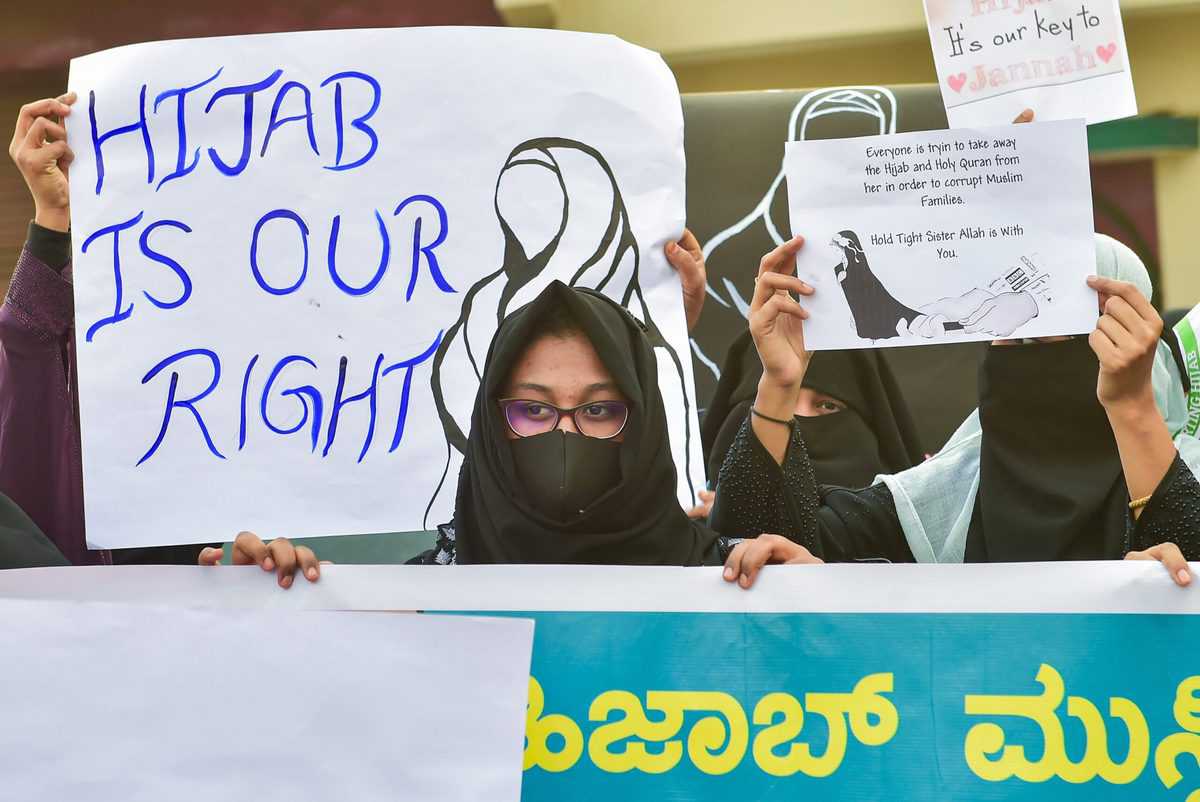
New Delhi: Prominent Muslim body Jamiat Ulema-e-Hind on Tuesday expressed deep disappointment over the Karnataka High Court’s decision of upholding the ban against hijab in educational institutions in the state, and said the verdict would have an adverse impact on religious freedom and education of Muslim girls.
The High Court on Tuesday said the hijab was not part of the essential religious practice in the Islamic faith and effectively upheld the ban against the headscarf in educational institutions in the state by dismissing pleas from Muslim girls seeking nod to wear it in classrooms.
Reacting to the verdict, Maulana Mahmood Madani, president, Jamiat Ulema-e-Hind (Mahmood Madani faction) said it was “deeply disappointing” and the verdict would have a direct impact on religious freedom.
He asserted that no society is governed only by legal nuances on issues in which traditional and social values matter.
In a statement, the Jamiat chief said this verdict would have many negative implications, especially on the education of Muslim girl students as they would lose their right to choice and their confidence in the “present communal atmosphere”.
Indian Muslim women have a deep attachment with their belief about modesty and veil which can never be erased merely by judicial intervention, Madani argued.
He emphasised that the decision regarding any particular religion should be based on the accepted interpretation of the beliefs by authoritative scholars and jurists of that religion.
He urged the state governments and the central government to fulfill their responsibility of protecting the established culture and tradition of a particular community.
“We urge the governments to take action that can serve larger national interests,” Madani said.
He also appealed to the youth to exercise restrain and avoid protesting on the streets and taking the law into their own hands.
A three-judge full bench of the High Court said the prescription of school uniform is only a reasonable restriction, constitutionally permissible which the students cannot object to.
Meanwhile, a plea was filed on Tuesday in the Supreme Court by a Muslim student challenging the Karnataka High Court verdict.
